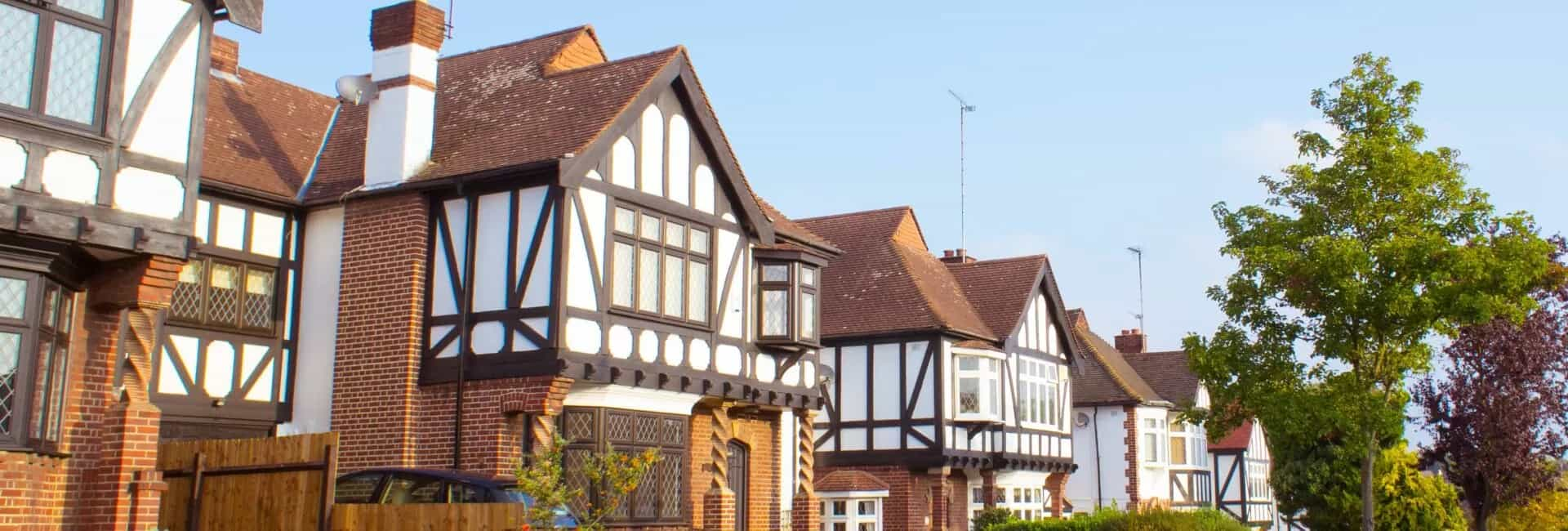
No one wants to move into a new house only to discover that the roof needs repairing or, perish the thought, replacing.
At best, you’re looking at a cost of a few hundred pounds to make repairs. But if the damage is bad enough to warrant a full replacement you could be hit with a bill of between £3,000 to upwards of £18,000, according to Checkatrade.
What’s more, a problem in this most integral of features is usually urgent, leaving you with no flexibility on when the work is carried out.
So before you make an offer on a property, it‘s essential that you do your due diligence first.
One of the best ways to get a full picture of a property’s condition is by commissioning a RICS Homebuyer Survey, which will look at all the main elements of a property including the roof. For very old or more complex homes, we would always recommend a more in-depth RICS Building Survey.
You can also carry out your own inspection of the roof from the ground. Keep an eye out for missing tiles, broken flashing and areas that appear to be drooping or sagging. If possible, get into the loft space and check the interior for any gaps, holes or signs of damp.
Take a thorough look around the rest of the property when assessing the condition of the roof. Issues such as damp patches on the ceiling, stained plaster in top floor rooms and sagging ceilings are all signs there may be a problem.
Beyond that, make sure you ask the seller or agent plenty of questions. We recommend you get answers to these topics before you sign on the dotted line.
How old is the roof?
The average lifespan of a roof is between 25 – 50 years, dependent on the materials used and quality of construction. By finding out when the roof was fitted or replaced you will get an idea of how long it is likely to last.
What is it made from?
This, again, is a question that will help you anticipate potential costs. The most durable material for a roof is slate or clay tiles, which can last up to 100 years if well maintained. Concrete tiles also have good longevity, lasting between 40 and 80 years. EDPM rubber is good for 40 – 60 years and metal roofs will last three or four decades. Asphalt, often found on flat roofs, is one of the materials most likely to need repair. It usually needs replacing once it is beyond the 25-year mark.
Who installed it?
If possible, it is worth finding out the name of the contractor that installed or replaced the roof. In the UK, there is no legal requirement for licences or certificates to operate as a roofer. It may give you some reassurance if you find out the seller used a roofer registered with a competent person scheme, which offer insurance-backed warranties and complaints procedures in case of any problems. In any case, the seller should be able to provide a Building Regulation Compliance certificate for any work carried out.
Is the seller willing to fix the roof if needed?
You should be able to negotiate with the seller if it turns out the roof of their property is in need of repair or replacement. You will need to weigh up whether it is best to request that the seller carries out the work in order for the purchase to proceed, or whether to reduce your offer to cover the costs. In addition to a professional Home Buyer Survey or full Building Survey, a Specific Defects Report can be a useful tool to use in any negotiations as it will give in-depth analysis of an issue as well as detailing the likely course of action needed.
Are you confident that your dream home will live up to expectations? Call us now for friendly, expert advice on how to ensure a smooth move.
